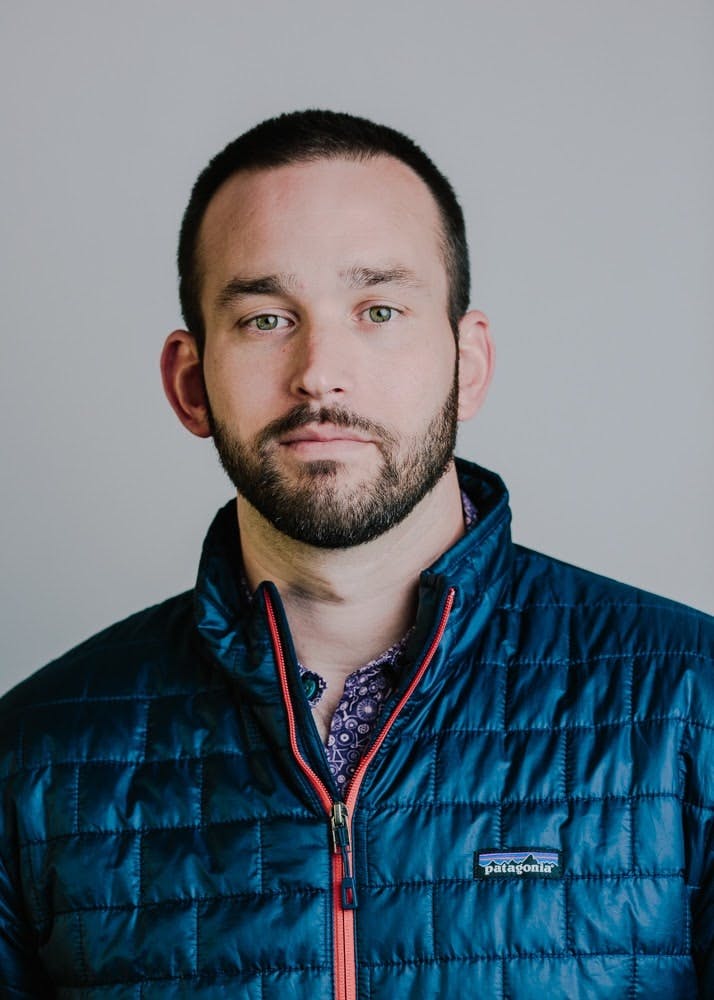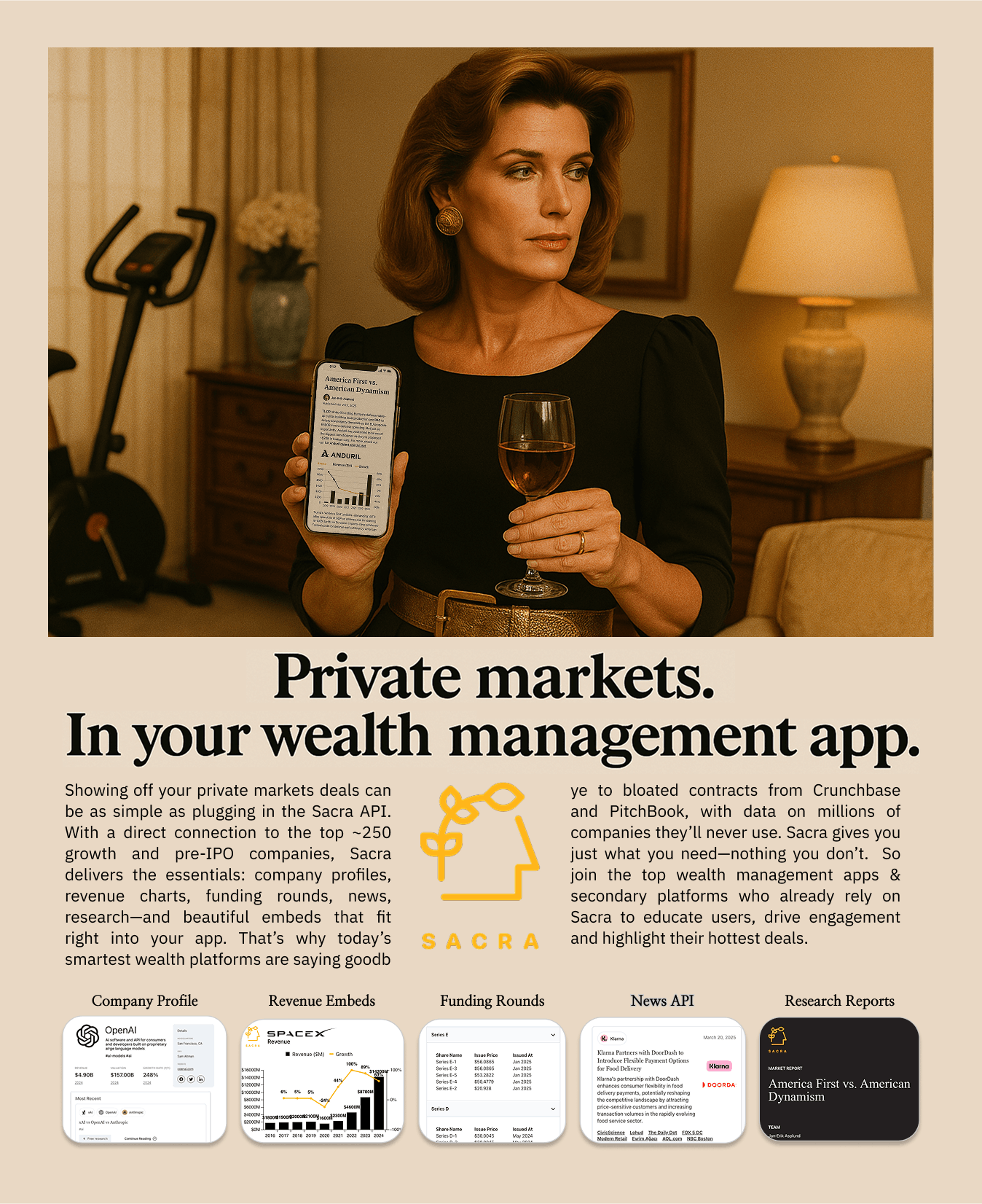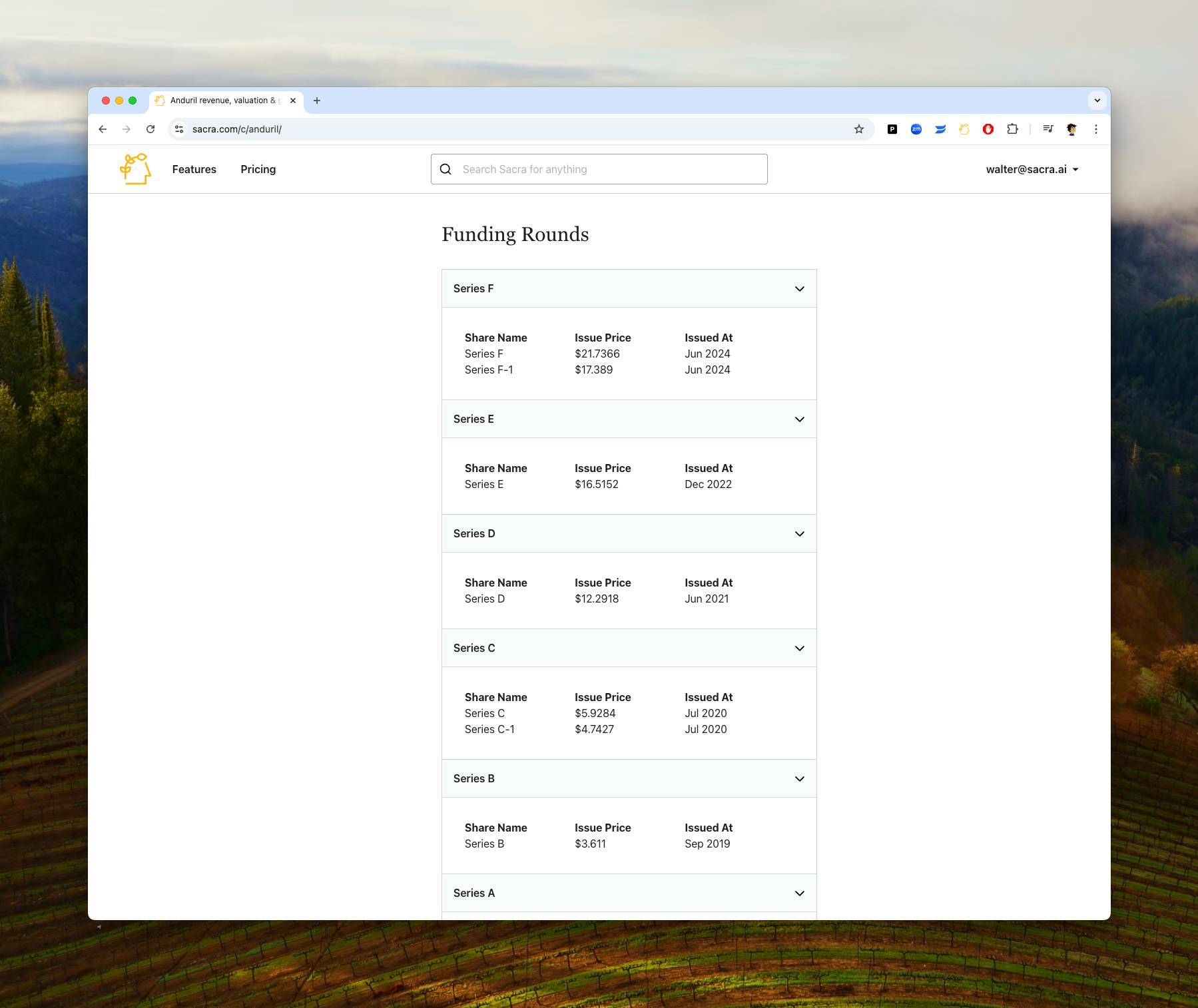This week’s exclusive features Jake Chapman, Managing Partner at Alpha Bridge Ventures.
Alpha Bridge Ventures invests in post-seed and pre-series A deep tech companies and their portfolio companies include Roam Research, Alto IRA, and MUD/WTR. A technology optimist and science fiction fan, Jake is also a big advocate for founder health and happiness and an active writer (Labyrinth). He’s written articles for TechCrunch, WIRED and Venture Beat, and has also appeared in the US News and World Reports and Forbes for his thoughts on the future of technology and venture capital.

TCT: You’re a believer in the utopian world of abundance, exploration and equality. As an investor, you note that you focus on companies bringing us closer to that utopian vision, which spans across AI, Robotics, Aerospace, Autonomy and other related industries. If you had to pinpoint, what moment in time did you gravitate and formalize this thesis? What’s your motivation behind this?
The interest in a world of abundance is derived from my lifelong Star Trek fandom. I grew up watching The Next Generation and have greedily devoured all subsequent Star Trek series. Gene Rodenberry’s vision was of a world of radical abundance where technology has largely done away with material wants for those in the Federation. What is brilliant about Rodenberry’s vision is that there isn’t any magic involved, much of the core technology that makes the world possible is theoretically possible in one form or another. Rodenberry takes it a step further in that he also imagines that once you remove the material constraints on society and the competitive pressures those constraints impose, you end up with a society that is free, just and full of people who are explorers. In Star Trek, many of the characters are literal explorers but I think it's really an allegory for personal exploration and whatever that means to each individual. The federation is really a society where every person is free to self actualize. It's a vision that I am addicted to seeing made real.
When I started my career I wasn’t actively pursuing this vision and I certainly hadn’t been able to articulate it yet. It really crystallized for me as I was wrapping up my second fund, Gelt Venture Capital, and thinking about what to do next. I realized in this brief interregnum that I wasn’t actually investing exclusively in the companies building the future that I wanted to live in. It struck me that the power and agency I had as an investor was really all about backing the founders and companies who are building the future I want to see and that I was wasting my life / resources if I was pursuing nothing more than great returns. Instead I needed to refocus my work on returns AND impact.
Alpha Bridge invests in seed stage companies and one of your core principles is “we focus on helping the founders accelerate towards their Series A both personal and professionally” While the professional advancement seems more of a given, the personal angle is not talked about much in venture. What’s an example of how you’ve helped founders on the personal side at this stage?
I think of venture capital as a little like the timber industry. We’re inherently extractive. I make my living on the blood sweat and tears of founders. Some investors choose to clear cut old growth forests... I made a conscious choice though to be a responsible timber company who cares for the forest that I’ve inherited and gives back to the forest as much as possible. Focusing on the personal side of the founder journey is one piece of how I try to be a responsible investor and care for the folks I interact with over and above their pure dollar value to me and the fund.
My partners Howie, Kari and I realized that at some point between seed and series B, usually right around series A, the existential risks for companies really shift from technology or product market fit and become all about the people behind the business. Are the founders going to burnout? Do they still get along and work well together? Can they build a company culture? Can they retain the right people, formulate and hold an inspiring vision, drive a company to execute, etc?
Continuing on the topic of personal development, Alpha Bridge has a program called Atlas, a founder development program that holistically supports the people you invest in. Can you tell us more about this program and how you help founders?
Atlas is how we attempt to productize and offer holistic founder support to all the founders we get to work with. When we invest we ask founders to meet with Kari and her team. We work with our founders to figure out where their gaps are and what they want to work on. Then we build a custom program for each. Because we believe that great leadership requires an alignment between leadership skills AND mental health AND physical wellbeing, our support comes in all three forms. We work with executive coaches, sleep therapists, nutritionists, personal trainers, therapists, co-founder therapists, story telling coaches and just about any other form of support you can imagine. Based on the founder’s assessment and desires we pull each of these resources in at the right moment and we do it all free of charge to the founders. We struck a deal with our LPs at the beginning that we believed these things would drive ROI at the end of the day and that the fund would pay for them.
So far, our thesis is proving out.
Alpha Bridge was an early investor in Roam Research, a note taking tool for networked thought that was last valued at $200M in September of 2020. Can you tell us more about how you met the founders and why you invested?
We first met Conar at the inception of Roam. He came to one of the in person Atlas events we held in the pre-covid world. We called them homeostasis happy hours. Conar was just starting to think about Roam and asked Kari to play with an alpha that he hacked together over a weekend. Unfortunately, we totally missed the opportunity at that stage. Flash forward a year+ and I had become a Roaman, totally addicted to the note taking tool. I had tried all the other things out there and nothing stuck until I tried Roam. I immediately re-engaged but it was too late until their last round came together and we were able to sneak ourselves in.
We invested in Roam for a few reasons:
I love Roam and invested for the tool
I invested because Conar is a unique founder with a unique way of viewing the world. I am confident that he will find ways to build and use Roam that will astonish us all
I imagine a world where everyone uses Roam and the networked thoughts it maps are essentially the Jungian collective unconscious turned into a structured data format. HOW AMAZING IS THAT?!
Now imagine you apply GPT-10 to it? I think Roam has the potential to produce amazing, world changing EMERGENT properties. Why not invest in that?
Sign Up Today!
To get these right in your inbox
Can you tell us more about your due diligence process, and how you go about vetting companies at the seed stage?
I can’t say we do too much here that is unique.
The first filter is “do I care if this company and these founders succeed?” I need to personally buy into the mission, not just the business. Yes, my job is to make money but honestly if I don’t care about the mission, there is another investor who will be a better match for the company than I will be.
Second, we start thinking about incentive alignments in the business. What are the customer’s incentives? The incumbent’s incentives? Government or regulatory incentives? Then how does the company and its business model fit into that woven pattern? We’re looking for alignment in such a way that the business will have minimal external friction trying to hold it back. Next, we look for protectability in one form or another and try to understand how the founders think about growing and sustaining the business over the long term. Finally, the piece that we do which is probably more unique is we do a deep dive into the founders themselves and their team dynamic. We want to know why they chose to work together, how they resolve disputes, what each of them think the failure points in their business and interpersonal relationships are most likely to be, etc. Once we dive in with them on this stuff, we try and see where they may be misaligned or at least not communicating well with one another. As I mentioned earlier, we really view the biggest business risks to be people centric so we try to solve for that at each juncture.
In your newsletter, The Labyrinth, you state that founders need to understand how to think like a VC and understand how they make decisions to help them succeed if they plan on raising venture money. If you had to boil it down to a few bullets, how do VC’s think and make decisions that are not often portrayed in public? (ie you wouldn’t know this unless you worked in VC)
It's a really complicated question with a long complicated answer but the simplest version of it, is to understand the incentives the particular VC you are speaking with is confronted with in the moment.
Some of this comes from their performance so far, where they are in a fundraising cycle, the types of companies they’ve invested in most recently, intra-firm politics, all the other companies they’re looking at at the same time as they are looking at you, etc. What it boils down to is that you and your company factor shockingly little into many VC’s decisions in whether or not to invest in you. The number of and strength of all of the exogenous variables is hard to combat with a 15 slide deck and a 30 minute pitch conversation. What this means is (1) if you know as many of those factors as possible, you can tailor your opportunity to perfectly fit someone’s current needs (maybe) but (2) don’t take rejection personally because 90%+ of the time it has nothing to do with you.
What was your first 100x/10x and how did you get into that deal?
Lambda School was my first break-out hit. I met Austen when he was working on his prior company, Grasswire, which was a crowdsourced and researched global news platform. The community he built there was incredible and produced A+ work product, actually beating many major agencies to real, globally important scoops. Unfortunately, the business didn’t work out. I think we could really use Grasswire these days to get passed the slanted news all around. Anyway, that's where I met Austen and started getting to know him. He is such a hard working, thoughtful, mission oriented guy I was convinced he was going to change the world for the better and build something incredible. We stayed in touch during his interregnum and then as soon as I saw he was building something new I was ready to invest. It could have been a milkshake company or a cardboard box company and I would have invested in Austen.
How do you stay organized with your investments (managing notes and SAFEs, pipeline, etc)?
Ugh. Organization is unfortunately my greatest weakness. We do our best using Airtable. In my next fund, I’ve committed myself to using Aumni for managing deal docs. What I really need is a COO or CFO just to help me keep the trains running on time!
What’s your secret for getting on the cap table?
I care about the people building the business more than I care about making money. If I’m trying to invest, it's because I care just as deeply about the world they’re trying to build as they do. I’m 100% transparent about the first two points and about where I stand at all times. I think these things translate into authentic authenticity and at the end of the day, that's the kind of person most founders... most people want to work with.
Now, I say I care more about the people and the future than making money. That is 1000% true but as I tell our LPs, “I’m not in the business to make money but I make money because I NEED to be in the business.” Functionally, maybe it's the same thing, but I think motivation and intention shines through.
What’s your biggest cap table “mistake” and/or miss?
I used to be a poker dealer and player and many of my lifelong friends are professional poker players. I’ve learned a few mission critical lessons when it comes to investing from them.
- Focus on the decision making process and not the outcome. You can make good decisions but have a bad outcome and you can make bad decisions but have a good outcome. The trick is separating the two otherwise you’ll gradually pollute your decision making process and your results will suffer from it in the long run.
- Each decision is a statistically independent event. You can’t let what happened a minute ago, impact what happens next. This doesn’t mean you shouldn’t learn lessons but it means that you need to make your decisions with a cool head. In order to do that, in order to avoid being “on tilt”, I think it's important that when you make a mistake, you analyze it, draw lessons from it and then let it go. It's in the past and it's over. Keep your eyes forward. Because of that I think it's a terrible mistake to obsess on your “anti-portfolio”. I used to have an LP who would send us all of our misses whenever there was a new TechCrunch article about them. I can’t tell you how toxic, misguided and counterproductive that kind of behavior is.
Do I have misses? Yes, of course. Roam at the pre-seed is one but I don’t focus on them. I absorb the lesson and then, like I did with Roam, I fix it and move on.
1/ Sometimes I find myself giving the bull case for venture capital as an asset class.
— Jake Chapman (@vc) April 15, 2019
I thought y'all might find the pitch interesting so I'm going to share it
Note If you're pitching your market/asset class you've already lost. I just refuse to surrender so 🤷♂️
Are you still as bullish, bearish or neutral on venture capital as an asset class?
I'm a technology optimist.
While tech is value neutral, it's a tool that helps us make life better, longer and more interesting. If you believe that will continue to be the trend I don’t know how you can be anything other than a bull when it comes to venture capital. It's a really hard way to make money but it's an amazing place to build value and if you get good at building value, the money will follow.
What’s the state of seed stage funding in 2030?
Conflict with China will set the board for the next 30 years. Hopefully, it will largely be economic and socio-political-cultural conflict as opposed to armed conflict but the American lead order is incompatible with the CCP and the world Xi envisions. Part of the way this will play out is in a Balkanization of the global economy into two parallel supply chains for critical technologies and materials. It doesn’t spell the end for globalization but it will kick off a massive reshuffling that will touch every part of the economy and will create huge opportunities for those keeping their eyes wide open. Opportunities will abound in processing raw materials, mining, logistics, microelectronics like chips and chiplets, energy, food, defense tech (obviously), AI and biotech. Just look at what Resilience Bio has done in less than a year, pretty crazy to go from founding to almost $1B IN CAPITAL RAISED, in less than a year but that's what happens with the US is properly mobilized and we’re on our way to a national mobilization.
Follow Jake on Twitter (@vc) for more insights into all things venture capital and startups!


